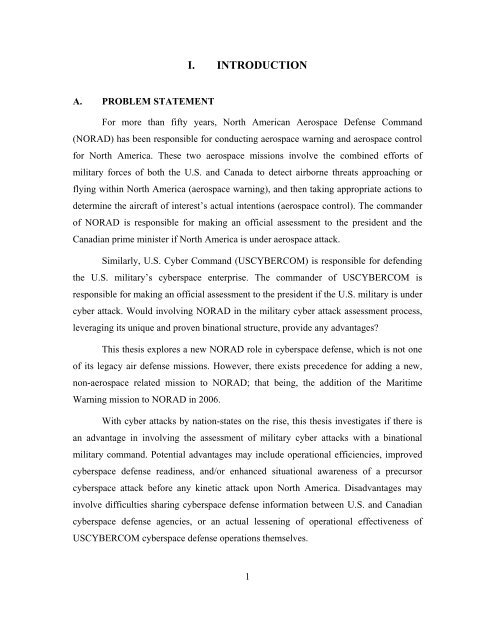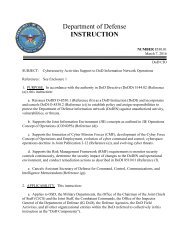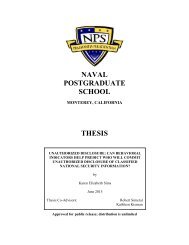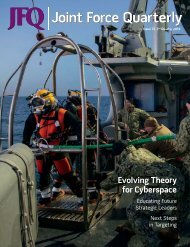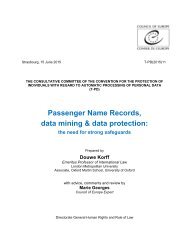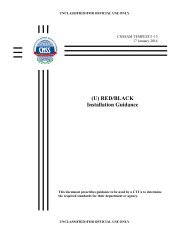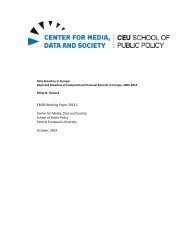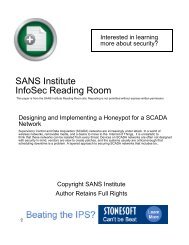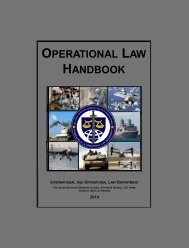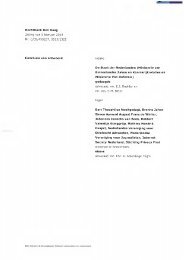SCHOOL THESIS
?view&did=788526
?view&did=788526
Create successful ePaper yourself
Turn your PDF publications into a flip-book with our unique Google optimized e-Paper software.
I. INTRODUCTION<br />
A. PROBLEM STATEMENT<br />
For more than fifty years, North American Aerospace Defense Command<br />
(NORAD) has been responsible for conducting aerospace warning and aerospace control<br />
for North America. These two aerospace missions involve the combined efforts of<br />
military forces of both the U.S. and Canada to detect airborne threats approaching or<br />
flying within North America (aerospace warning), and then taking appropriate actions to<br />
determine the aircraft of interest’s actual intentions (aerospace control). The commander<br />
of NORAD is responsible for making an official assessment to the president and the<br />
Canadian prime minister if North America is under aerospace attack.<br />
Similarly, U.S. Cyber Command (USCYBERCOM) is responsible for defending<br />
the U.S. military’s cyberspace enterprise. The commander of USCYBERCOM is<br />
responsible for making an official assessment to the president if the U.S. military is under<br />
cyber attack. Would involving NORAD in the military cyber attack assessment process,<br />
leveraging its unique and proven binational structure, provide any advantages?<br />
This thesis explores a new NORAD role in cyberspace defense, which is not one<br />
of its legacy air defense missions. However, there exists precedence for adding a new,<br />
non-aerospace related mission to NORAD; that being, the addition of the Maritime<br />
Warning mission to NORAD in 2006.<br />
With cyber attacks by nation-states on the rise, this thesis investigates if there is<br />
an advantage in involving the assessment of military cyber attacks with a binational<br />
military command. Potential advantages may include operational efficiencies, improved<br />
cyberspace defense readiness, and/or enhanced situational awareness of a precursor<br />
cyberspace attack before any kinetic attack upon North America. Disadvantages may<br />
involve difficulties sharing cyberspace defense information between U.S. and Canadian<br />
cyberspace defense agencies, or an actual lessening of operational effectiveness of<br />
USCYBERCOM cyberspace defense operations themselves.<br />
1


